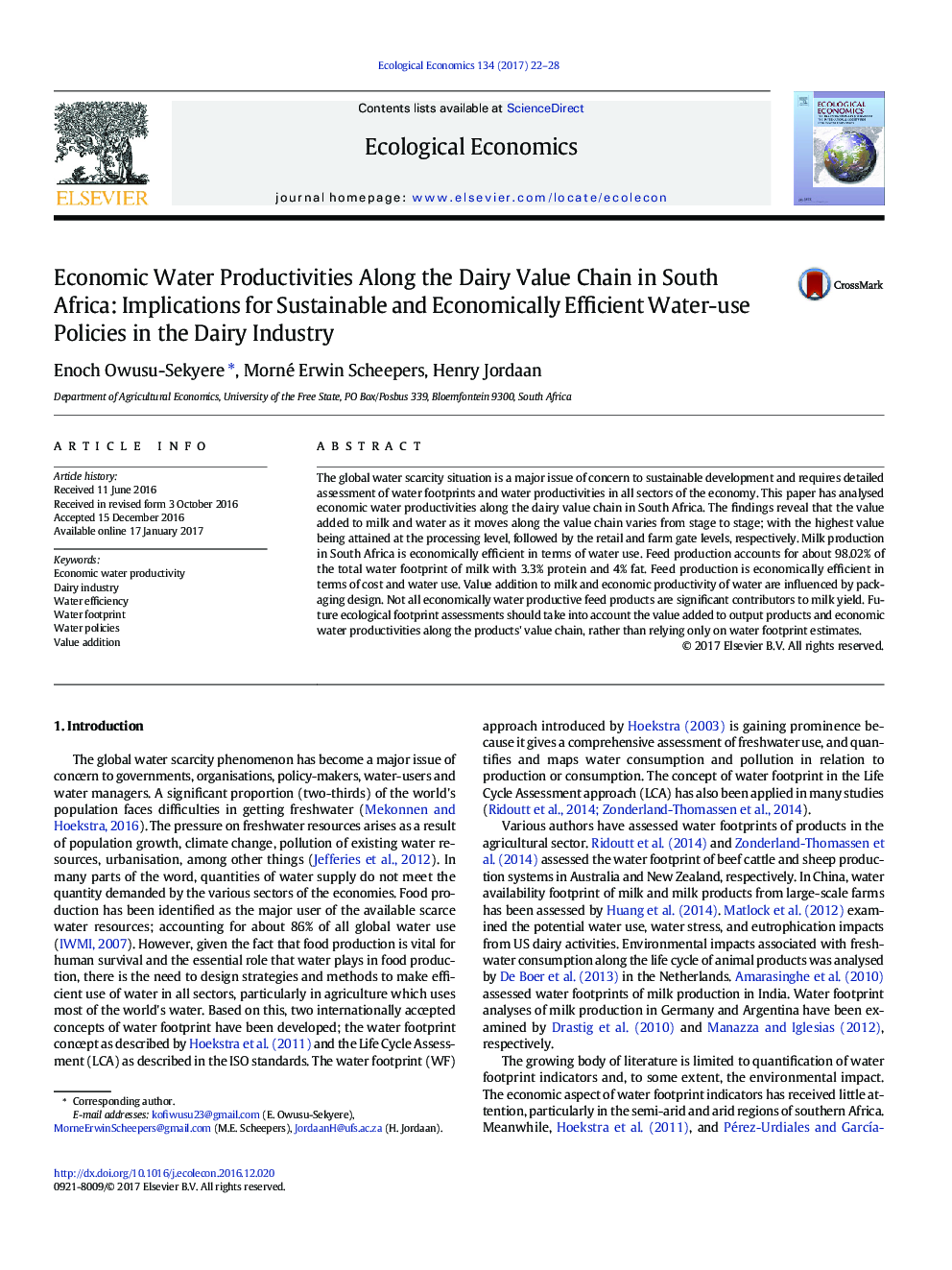| Article ID | Journal | Published Year | Pages | File Type |
|---|---|---|---|---|
| 5048678 | Ecological Economics | 2017 | 7 Pages |
â¢Future ecological sustainability studies should consider economic productivities.â¢Account for economic water productivities is vital in water sustainability policies.â¢The dairy industry should not be judged based on water footprint indicators alone.â¢Blue economic water productivity is directly associated with production cost.â¢Economic water productivity should be part of farmers' production decisions.
The global water scarcity situation is a major issue of concern to sustainable development and requires detailed assessment of water footprints and water productivities in all sectors of the economy. This paper has analysed economic water productivities along the dairy value chain in South Africa. The findings reveal that the value added to milk and water as it moves along the value chain varies from stage to stage; with the highest value being attained at the processing level, followed by the retail and farm gate levels, respectively. Milk production in South Africa is economically efficient in terms of water use. Feed production accounts for about 98.02% of the total water footprint of milk with 3.3% protein and 4% fat. Feed production is economically efficient in terms of cost and water use. Value addition to milk and economic productivity of water are influenced by packaging design. Not all economically water productive feed products are significant contributors to milk yield. Future ecological footprint assessments should take into account the value added to output products and economic water productivities along the products' value chain, rather than relying only on water footprint estimates.
